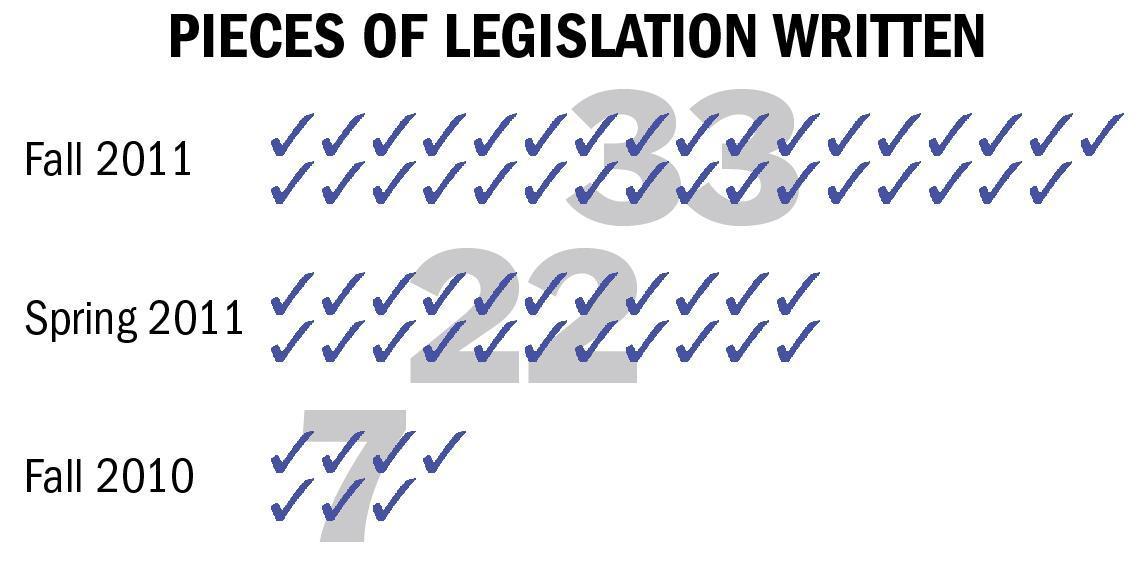Student Government senators have written and debated more legislation this fall in less time than in the previous two semesters.
The senators wrote 33 pieces of legislation this semester, while 22 were written last semester. In fall 2010, only seven pieces of legislation were written and presented to the Senate.
Of this semester’s legislation, the Senate discussed 13 finance bills, which directly relate to students or to programs that affect students.
One of these finance bills includes a bill approved to fund an additional 200 clickers to Middleton Library’s rental collection, which the library received in October.
The Senate spent 26 hours gathering in the Capital Chamber during its 12 meetings this fall, a decrease from the 33 hours spent last semester.
This semester, twelve hours, or 47 percent, of the time spent in meetings were dedicated to presenting and debating legislation, and 14 hours, or 53 percent, of time was dedicated to meeting procedure.
Meeting procedure includes reciting the pledge, roll call, public input from guests, committee reports, caucus reports, final announcements and executive, judicial and legislative office reports.
“Senators do a great deal of work in committee meetings and college council meetings, which have minimal procedure time and are almost entirely devoted to student initiatives,” said SG Senate Speaker Aaron Caffarel.
Caffarel said he believes the Senate’s semester went well, especially taking into account the number of new senators. This group of senators has created a great foundation for future leadership in SG, he said.
“I didn’t anticipate that we were going to have the number of legislation written that we did,” he said. “The new senators jumped right in and brought in a huge wave of new and fresh ideas coming into Senate.”
While the Senate has completed more work in less time than last semester, Caffarel said the Senate’s success should be judged based on output and not time.
“I believe that the analysis of Senate’s productivity and work using time is completely inaccurate and misleading,” he said. “We don’t mind being criticized. We want to know what students have to say, but we want to be criticized in a way that actually reflects on what we’ve done.”
Caffarel said the extensive times are also a result of accommodating senators and guest speakers who wish to voice their opinions.
“The time depends on what we have going on that week,” he said. “We will never compromise the integrity of the process for the sake of saving a few minutes of time.”
Caffarel said the Senate managed time within its meetings well this semester, and in order to save time, he implemented procedures including the use of clickers to record roll and ballot casting.
While the Senate experienced some difficulties with the clickers this semester, Caffarel said the Senate staff will be testing out the clickers over the break to ensure they work properly for the spring semester.
“The use of clickers will save a few hours of time over the course of the semester,” he said.
Caffarel also implemented a procedure that lines up speakers next to the podium during meetings.
“This way, we can avoid the awkward, long walk to the podium,” he said. “As silly as it seems, it’s the small things like this that can take up time.”
—-
Contact Kate Mabry at kmabry@lsureveille.com
Senate accomplishes more in less time than last semester
December 1, 2011





